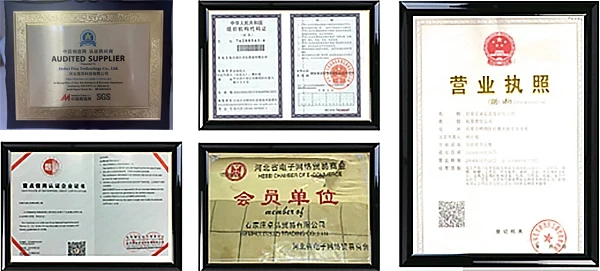



swimming pool water treatment chemicals
Swimming Pool Water Treatment Chemicals A Guide to Maintaining Clean and Safe Pool Water
Swimming pools are an oasis of relaxation and fun, especially during the hot summer months. However, maintaining crystal-clear, safe water requires a dedicated approach to water treatment. Pool water treatment chemicals play a crucial role in ensuring the water remains hygienic, balanced, and enjoyable for swimmers. This article explores the types of chemicals used in swimming pool water treatment, their functions, and tips for effective maintenance.
The Importance of Water Treatment
Clean and safe pool water is vital for the health of swimmers. Unchecked water can harbor harmful bacteria, viruses, and algae, leading to potential health risks. Additionally, imbalanced water chemistry can result in skin irritation, eye discomfort, and a host of other issues. Water treatment chemicals help to address these concerns, ensuring that pool water meets safety standards and remains inviting.
Key Pool Water Treatment Chemicals
1. Chlorine Perhaps the most well-known pool chemical, chlorine is a powerful disinfectant that kills bacteria and inactivates viruses. Chlorine can be added to the pool in various forms, including liquid, granules, or tablets. Regular testing of chlorine levels is crucial, as the ideal range for pool sanitation is typically between 1-3 parts per million (ppm).
2. pH Adjusters Maintaining a balanced pH level is essential for effective chlorine performance and swimmer comfort. The ideal pH range for pool water is between 7.2 and 7.8. If the pH is too low, acidic water can cause skin and eye irritation, while high pH levels can lead to decreased chlorine efficacy and cloudy water. Common pH adjusters include sodium carbonate (soda ash) to raise pH and sodium bisulfate to lower it.
3. Algaecides Algae can quickly take over a pool if not proactively managed. Algaecides are chemicals specifically designed to prevent and control algae growth. They can be used as a preventive measure or as a treatment for existing algae blooms. Regular use of algaecides is recommended, especially during warmer months when algae thrive.
4. Stabilizers Cyanuric acid is a stabilizer used to protect chlorine from degradation caused by ultraviolet (UV) sunlight. It helps maintain effective chlorine levels in outdoor pools by preventing rapid loss of chlorine due to sunlight exposure. The ideal cyanuric acid level is typically between 30-50 ppm.
5. Clarifiers Cloudy water can be a common problem in pools, often caused by small particles that are too tiny for the filter to capture. Clarifiers work by coagulating these particles into larger clumps that can be filtered out. Using a clarifier can help restore clarity to pool water.
swimming pool water treatment chemicals

6. Shock Treatments Shocking the pool involves adding a high dose of chlorine or other oxidizers to eliminate contaminants, combined chloramines (formed when chlorine combines with organic matter), and organic debris. Shock treatments are usually performed every week or after heavy usage to ensure optimal water quality.
Best Practices for Using Pool Chemicals
1. Regular Testing Conducting regular water tests is critical to maintaining the right chemical balance. Test kits are widely available and can help assess chlorine levels, pH balance, alkalinity, and the presence of stabilizers.
2. Follow Manufacturer Guidelines When using any pool chemicals, always read and follow the manufacturer’s instructions for proper dosage and application methods. Overdosing can lead to further problems, while underdosing may not adequately tackle contamination.
3. Timing Matters Add chemicals to the pool at the right time. For instance, shock treatments are best performed in the evening when solar UV exposure is minimal. This allows for better chlorine retention overnight.
4. Safety First Always handle pool chemicals with care. Wear protective gloves and goggles when handling these substances. Store them in a cool, dry place, away from direct sunlight and out of reach of children.
5. Professional Assistance If maintaining pool water becomes overwhelming, consider enlisting the help of a professional pool service. They possess the knowledge and experience to manage water treatment effectively.
Conclusion
Maintaining clean and safe swimming pool water involves a conscientious effort in managing water treatment chemicals. By understanding the roles of chlorine, pH adjusters, algaecides, stabilizers, clarifiers, and shock treatments, pool owners can create a safe and enjoyable environment for swimmers. By prioritizing regular testing and adhering to best practices, you can ensure that your swimming pool remains a refreshing haven for relaxation and recreation.
-
Why Sodium Persulfate Is Everywhere NowNewsJul.07,2025
-
Why Polyacrylamide Is in High DemandNewsJul.07,2025
-
Understanding Paint Chemicals and Their ApplicationsNewsJul.07,2025
-
Smart Use Of Mining ChemicalsNewsJul.07,2025
-
Practical Uses of Potassium MonopersulfateNewsJul.07,2025
-
Agrochemicals In Real FarmingNewsJul.07,2025
-
Sodium Chlorite Hot UsesNewsJul.01,2025










